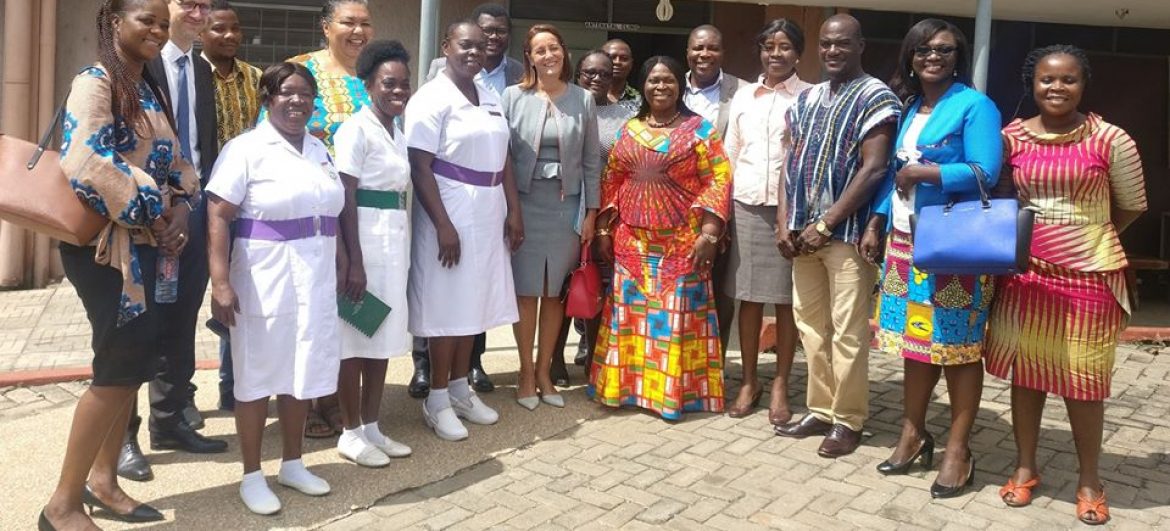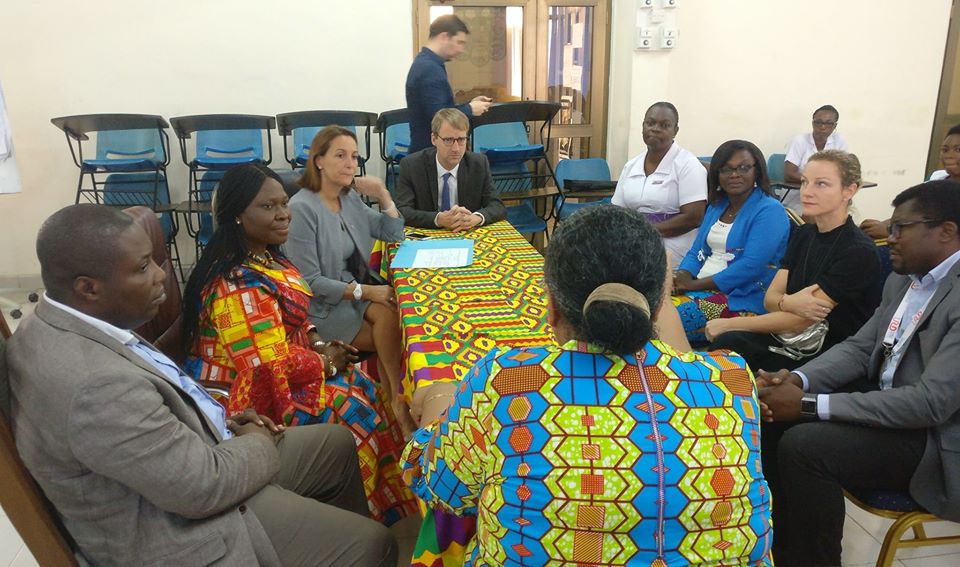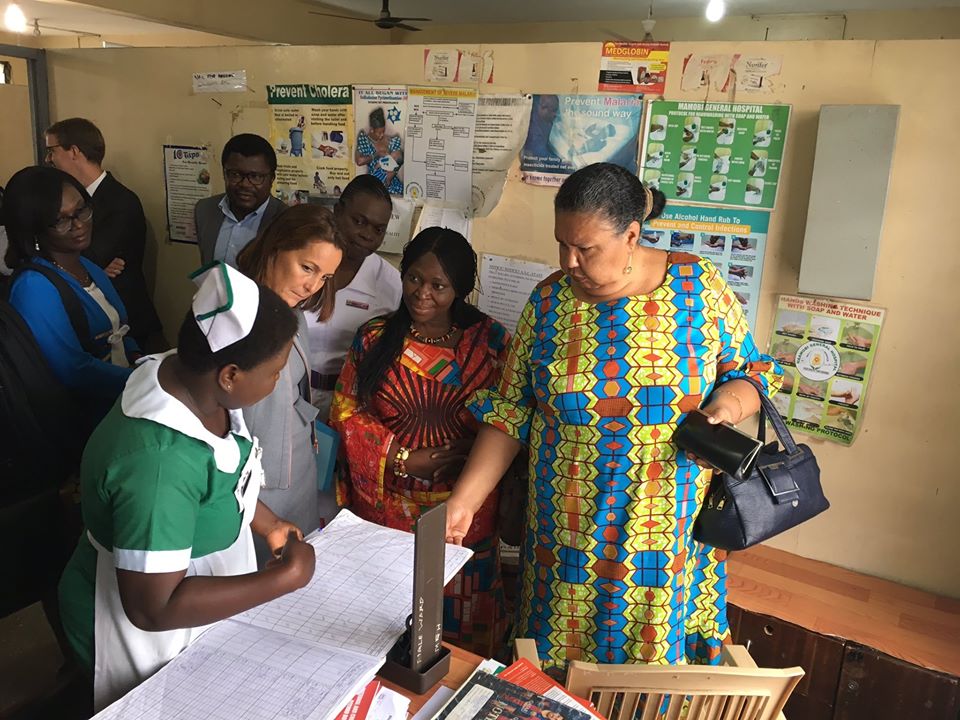Quis autem velum iure reprehe nderit. Lorem ipsum dolor sit nulla or narjusto laoreet onse ctetur adipisci.
Quis autem velum iure reprehe nderit. Lorem ipsum dolor sit nulla or narjusto laoreet onse ctetur adipisci.
HFFG ED meets French Ambassador

HFFG ED meets French Ambassador
On the occasion of the 6th Global Fund’s Replenishment Conference held in Lyon (France) on October 10, 2019, the Executive Director of HFFG, Cecilia Senoo who is also the Chair of the Country Coordinating Mechanism (CCM) joined the Ambassador of France to Ghana, Anne Sophie AVE to visit the Maamobi General Hospital, Accra , a facility that has benefited from the Global Fund.
The delegation, including representatives from the National Disease Control Programs (NACP), the National AIDS Control Program (NACP), the National Tuberculosis Program (NTP), and the National Disease Control Program (NTP), interacted with the staff of the Maamobi General Hospital and also toured some units of the facility.
The team also visited the Head Office of the West African Program to Combat AIDS and STIs (WAPCAS), the main recipient of the Global Fund. The Global Fund has several objectives: maximizing the impact of actions against HIV / AIDS, tuberculosis and malaria; building resilient and sustainable health systems; promotion and protection of human rights and gender equality and the mobilization of resources.
Since 2002, when it was created, more than $ 40 billion has been allocated to 140 countries to fight these three pandemics. By 2018, programs supported by the Global Fund to Fight HIV, Tuberculosis and Malaria have saved 32 million lives worldwide.
Ghana, the first recipient of a Global Fund grant, has received cumulative disbursements of US $ 817 million since 2002, including about US $ 110 million from France.
HFFG was selected in 2018 as a Sub-Recipient (SR) by the Ghana-West Africa Program to Combat AIDS and STI (PR) to implement the Community Systems Strengthening (CSS) component of the WAPCAS/ Global Fund NFM II Project.
The intervention seeks to achieve improved health outcomes by developing the role of key affected populations, communities and CSOs in the design, delivery, monitoring and evaluation of services and activities related to prevention, treatment, care and support of people affected by HIV, tuberculosis, malaria and other health challenges.


